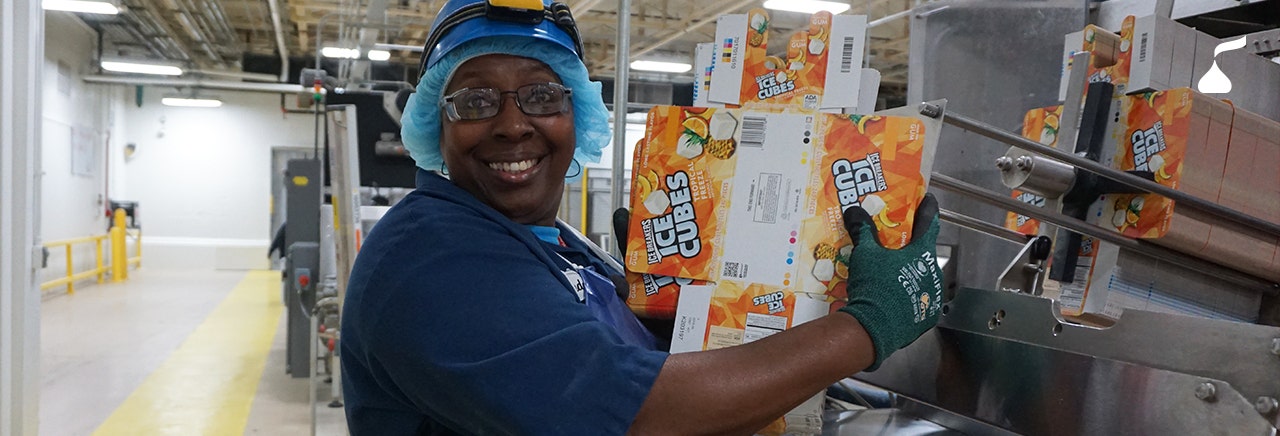Joining Forces to Protect Human Rights
In a range of human rights and labor rights due diligence frameworks -- the UN Guiding Principles, the United States Department of Labor Comply Chain, the OECD Due Diligence Guidance for Responsible Business Conduct -- as well as resources like the Responsible Sourcing Tool, companies are urged to map their supply chains and assess the geographies and supply chains where the risk of salient human rights issues is greatest. It may seem like a relatively simple or preliminary step, but when applied to the complexities of a multinational company’s business realities, this task can quickly become complicated.
After completing its own internal saliency assessment and launching its first human rights policy, The Hershey Company faced complexities in further mapping and understanding potential critical labor rights risks, such as forced labor, child labor, restrictions on freedom of association, and the presence of potentially vulnerable migrants. They reached out to Verité to help develop a methodology for mapping potential risk issues by geography and supply chain. They were clear that this needed to be an iterative process that would build their internal capacity for identifying, understanding, and managing risk.
Verité appreciated the diligence with which Hershey dove into this process to ensure their human rights work was effective as we began to collaborate on a methodology and a tool that would meet multiple needs. First, it needed to be adaptable, allowing Hershey to update findings in the future based on changes in potential risk as Hershey’s business evolved. Second, it needed to also allow Hershey to analyze the data in a flexible way that would support the development of practical tools like supplier risk assessments and standards for updates to codes and guidance in the future.
Verité took the opportunity to build on methodologies previously developed, with support from the U.S. Department of State for supply chain risk assessment (responsiblesourcingtool.com and www.verite.org/africa), that analyze risk at the country level, by sector, and, critically, deriving from how the industry operates in a particular country context. For example, we curated a list of authoritative, regularly-updated data sources on a wide range of issues related to country risk to identify additional indicators that would help triangulate quantitative scores. In partnership, we developed:
- A methodology for assessing labor rights risk based on migrant worker home country (labor sending country) and migration recruitment corridor (if applicable) in addition to country of employment.
- An approach to standardize quantitative scores so they could be compared across countries, industries, and supply chains.
- Information that goes beyond documented incidents of abuse to include contextual issues linked to worker vulnerability. Contextual issues identified include rule of law, poverty, gender equality, and environmental degradation.
Once the indicators were selected, Hershey provided data that allowed Verité to match the available datasets to Hershey’s identified salient issues and supply chain profile. Where possible, multiple indicators and information sources were used, including Verité’s own regional experts and experience speaking directly with workers in target regions.
The resulting database offers opportunities for the analysis of significance of risk, type of issue, emerging trends, geography, and industry, allowing Hershey to design human rights programming and strategy that addresses the most urgent issues and their root causes. Verité trained Hershey staff on the structure and functionality of the database so it can be sustainably integrated into their operations.
Since completion, Hershey has used the database to build a tool for segmenting suppliers to prioritize due diligence activities, including audits and other forms of human rights assessments, and Hershey will continue to use the tool to inform ingredient strategy and prioritization. Because the database is flexible, Hershey can build it out it as necessary; for example, they’re currently experimenting with incorporating additional environmental data points.
The partnership was a rich opportunity to refine strategies and frameworks designed for global applicability and test their practical application to the specifics of one company’s business and due diligence needs. Each meeting between the teams surfaced further clarifying questions and subsequent learnings: What format for providing the data would be most helpful and why? In what ways would Hershey want to segment the data? How important is it for Hershey to be able to prioritize supply chains or risk issues against each other? How did they want to weight various root cause factors in their risk analysis? Answering these questions in an iterative process allowed for a solution that met Hershey’s specific needs.
We believe that Hershey – and other companies willing to undertake this process – can use the resulting risk assessment approach to identify relevant root causes, design meaningful due diligence interventions, and ultimately, to improve the lives of vulnerable workers.
Allison Arbib is Research Program Director at Verité, an independent, nonprofit, civil society organization focused on human rights and eliminating labor abuses.
